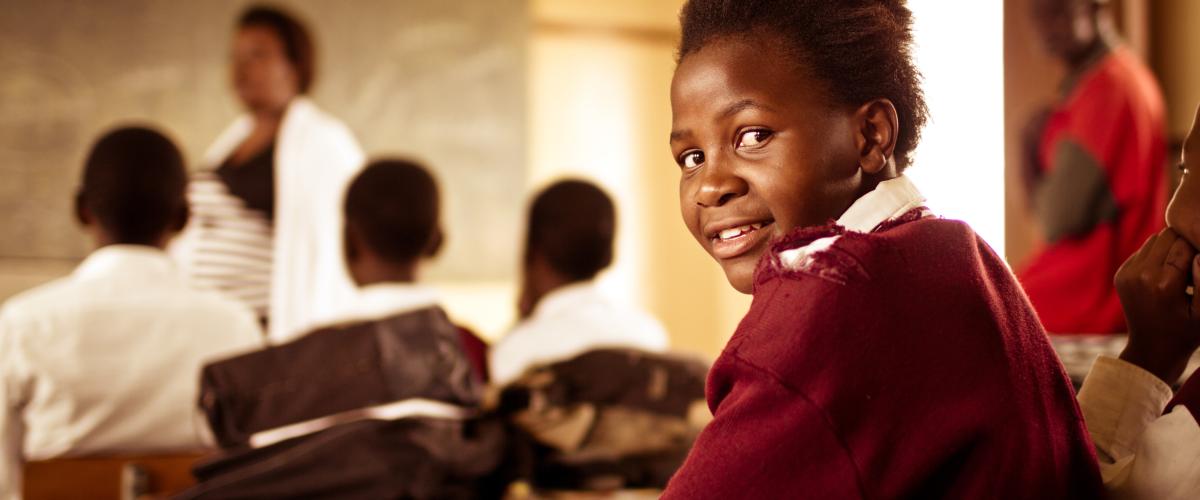The GFDRR 2023 Partnership Days event, held at the World Bank headquarters and online from May 22 to 23, 2023, brought together GFDRR members, observers, partners, and World Bank staff from around the world. With a focus on innovation, inclusiveness, and impact, the event showcased GFDRR’s unwavering commitment to addressing the increasingly difficult challenges in disaster risk management.
Highlighting the importance of meaningfully inclusive interventions, the event underlined both the need to safeguard the progress made to prevent any potential setbacks and the imperative for collective efforts to ensure the preservation of hard-earned gains in what has become an even more critical undertaking amid the challenges posed by climate change. The need for collaborative action among government, civil society, academia, and the private sector was also emphasized.
For example, in his opening remarks, Axel van Trotsenburg, the World Bank’s Senior Managing Director for Development Policy and Partnerships, underscored the instrumental role played by GFDRR within the World Bank in driving support for disaster risk reduction. He noted that, beyond financial resources, there is a pressing need for knowledge and technical expertise to effectively address disaster risks. Both GFDRR and the World Bank are committed to delivering a comprehensive package of support, recognizing that successful disaster risk reduction initiatives require more than just funding.
Building upon the commitment to comprehensive disaster risk reduction support, the discussions focused on putting people at the center of disaster risk management efforts. A panel on harnessing digital innovation, for example, concentrated on investing in local people, local devices, and open access, underlining the value of bottom-up models that leverage emerging global resources.
Another panel that was focused on resilient recovery in Türkiye and Pakistan showed that mainstreaming disaster risk management across all sectors is key to post-disaster reconstruction. In Türkiye, disaster risk reduction considerations will be integrated into investment plans, encompassing vulnerability assessments, resilient design features, and hazard mapping. In Pakistan, a GFDRR-informed cash-for-work project targeted women-led households, persons with disabilities, and marginalized groups, while reconstruction grants were provided to eligible female-headed households, accompanied by training in financial management and supervision of construction activities. Another highlight of the event was the launch of two GFDRR reports. The first report—Assessing the Benefits and Costs of Nature-Based Solutions for Climate Resilience: A Guideline for Project Developers—enables the identification of costeffective strategies aligned with project contexts and highlights eight case studies from World Bank projects, providing practical implementation guidance. The second report—Building Regulations in Sub-Saharan Africa: A Status Review of the Building Regulatory Environment—provides the first comprehensive snapshot of the building regulatory environment in Sub-Saharan Africa, where regulations are often still based on colonial-era documents and are not adapted for disaster and climate risks. The report emphasizes the need for an inclusive and participatory approach that involves government stakeholders, local communities, and building professionals to address key concerns and ensure effective implementation.
The event was interactive. Attendees had the opportunity to immerse themselves in the Safer Schools exhibit, an immersive virtual reality experience depicting a Peruvian classroom facing a powerful earthquake, highlighting the importance of resilient buildings and school safety. Haitian singer Tafa Mi Soleil also took the stage and delivered a performance of the anthem she composed for Disaster Fighters, which is a creative communications campaign that brings together people from different walks of life to promote awareness about disaster risk preparedness in the Caribbean.
In a video showcasing the strength of earthquake-resistant schools built with GFDRR support in Türkiye, a young boy, inspired by his school’s ability to withstand the devastating February 2023 earthquakes, shared his aspiration of becoming an engineer capable of constructing disaster-proof schools and homes. “When I grow up, I am going to be an engineer. I am going to build schools and houses,” he said. “Because the houses were destroyed in the earthquake, but I am going to build them like this school.”
It was a powerful moment that exemplified how disaster risk reduction extends beyond protecting lives and assets, as it has the transformative ability to inspire aspirations and positively reshape countless lives through proactive planning and action.
Takahiro Tsuda, the World Bank’s Alternate Executive Director for Japan, delivered the closing remarks and reflected this sentiment in his message: both physical infrastructure and social infrastructure—including safety standards and regulations—need to be prioritized to ensure overall resilience.
Amid the World Bank’s evolution process and the growing realization that climate change is becoming ever more urgent, being able to prepare for and recover from disasters has never been more relevant. The GFDRR 2023 Partnership Days event showcased the many ways that GFDRR has been stepping up to the plate by putting the people it aims to serve at the heart of its partnerships. This commitment will only continue to grow.

View more results stories from fiscal year 2023 in GFDRR's Annual Report 2023.
